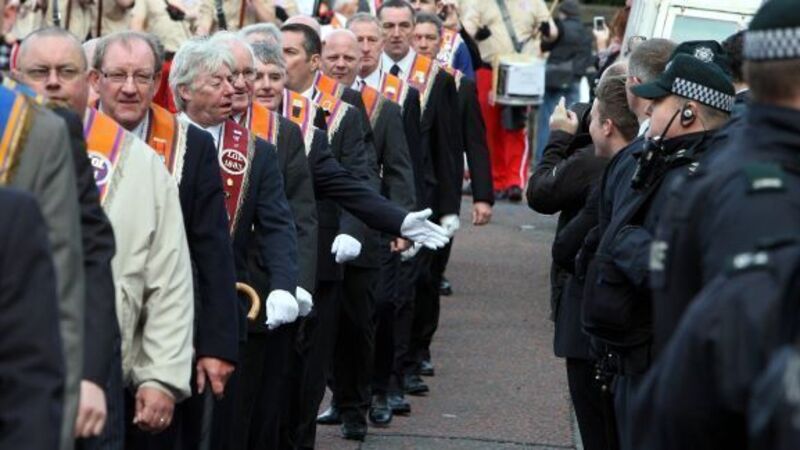Panel to probe NI parades dispute

The British Government has established a panel of experts to examine a long-standing parading dispute in Belfast that has been the source of bitter community tensions and outbreaks of serious violence.
The announcement from Northern Ireland Secretary Theresa Villiers comes in response to calls from a coalition of unionist and loyalist politicians and Orange Order leaders to set up a commission of inquiry into the impasse at the Woodvale/Ardoyne interface in the north of the city.













